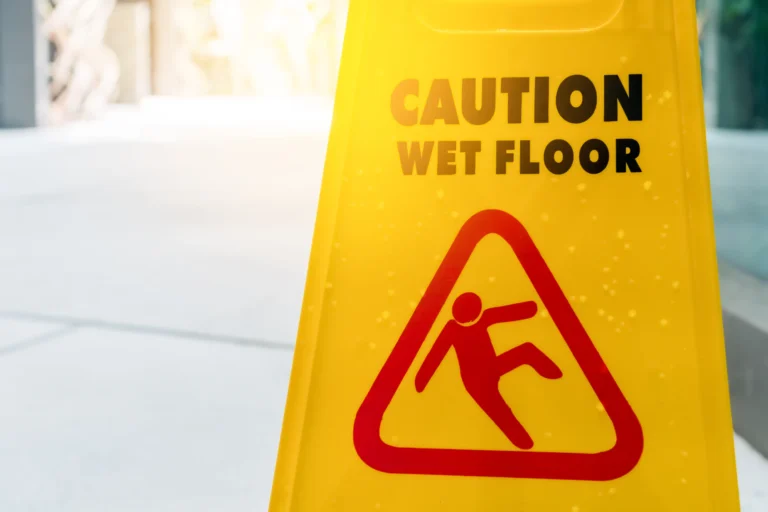Workers’ Comp vs Personal Injury Claims in Florida
Understanding Workers’ Compensation and Personal Injury Claims in Florida: What’s the Difference?
When you’re injured at work in Florida, understanding your legal options is crucial for securing the compensation you deserve. While workers’ compensation provides immediate benefits, you may also have the right to pursue a personal injury claim depending on your situation. Our Orlando-based attorneys, serving clients throughout Florida, regularly handle both types of cases and can help determine the best path forward.
Key Differences Between Workers’ Compensation and Personal Injury Claims
Workers’ compensation and personal injury claims operate under distinct legal frameworks in Florida. Workers’ compensation insurance provides immediate medical coverage and partial wage replacement without requiring proof of fault. However, personal injury claims can offer additional compensation when third parties are responsible for your injuries.
The primary distinctions include the requirement to prove fault, available compensation types, and claim procedures. Under Florida Statutes § 440.09, workers’ compensation operates on a no-fault basis, meaning you don’t need to prove your employer was negligent to receive benefits. In contrast, personal injury claims, such as a car accident claim, requires demonstrating another party’s negligence or wrongful conduct.
When You Can File Both Types of Claims
There are several situations where you might be eligible to pursue both workers’ compensation and personal injury claims simultaneously. From Jacksonville to Miami, our attorneys have successfully helped injured workers navigate these dual claims. Common scenarios include:
Third-Party Negligence
When someone other than your employer or coworker causes your workplace injury, you may have grounds for a personal injury lawsuit. For example, if you’re injured in a car accident while driving for work, you could file a workers’ compensation claim and pursue a personal injury case against the at-fault driver.
Defective Equipment Cases
If faulty machinery or equipment causes your injury, you might have a product liability claim against the manufacturer while still receiving workers’ compensation benefits. Construction accidents often involve these types of situations.
Independent Contractor Injuries
When independent contractors cause workplace accidents, injured employees may pursue personal injury claims against them while maintaining their workers’ compensation benefits.
Maximizing Your Recovery Through Both Systems
Understanding how to coordinate workers’ compensation and personal injury claims is essential for maximizing your recovery. Personal injury settlements typically offer broader compensation, including:
- Full lost wages (not just partial)
- Pain and suffering damages
- Loss of life enjoyment
- Future medical expenses
- Emotional distress
However, it’s important to note that workers’ compensation insurers may place a lien on your personal injury settlement to recover benefits they’ve paid. Working with attorneys who understand both systems helps ensure proper coordination and maximum recovery.
Understanding Workers’ Compensation Insurance Requirements
Florida law requires most employers with four or more employees to carry workers’ compensation insurance, with construction industry employers needing coverage even with just one employee. While construction and truck accidents often lead to serious injuries, even office environments can result in compensable injuries. It’s important to note that certain small agricultural businesses and independent contractors may be exempt from these requirements.
Common Workers’ Compensation Benefits
Workers’ compensation typically provides several types of benefits:
- Medical treatment coverage
- Temporary partial disability
- Temporary total disability
- Permanent disability benefits
- Death benefits for surviving family members
Coverage Limitations
Workers’ compensation benefits have specific limitations that often make personal injury claims necessary for full compensation. These benefits typically don’t cover:
- Full wage replacement
- Long-term care costs
- Quality of life impacts
- Family member suffering
Why You Need an Attorney for Both Claims
Managing concurrent workers’ compensation and personal injury claims requires careful coordination to avoid potential pitfalls. Insurance companies often dispute claims, and navigating both systems simultaneously can be challenging. Understanding the complexities of both systems while focusing on your recovery can be overwhelming, which is why professional legal guidance is crucial.
Navigating Settlement Negotiations
Settlement negotiations in dual claims require extensive experience and strategic planning. An experienced attorney brings valuable expertise to coordinate benefit timing and negotiate effectively with insurance companies. Your lawyer will protect your interests in both claims while ensuring proper handling of workers’ compensation liens. Through skilled negotiation and thorough understanding of both systems, your attorney works to maximize your total compensation while preventing insurance companies from taking advantage of the complex interplay between these claims.
Avoiding Common Mistakes
Throughout our years of practice across Florida, from Tampa to Miami, we’ve seen many clients who made critical errors before seeking legal representation. Some gave recorded statements without proper preparation, while others missed crucial deadlines that impacted their ability to recover compensation. Many failed to properly document third-party involvement in their accidents or didn’t fully understand their rights under both systems. Perhaps most concerning are those who accepted inadequate settlements before understanding the full scope of their injuries and available compensation.
Our personal injury attorneys have extensive experience handling complex cases involving both workers’ compensation and personal injury claims. We understand the nuances of Florida’s legal process and work diligently to ensure our clients avoid these common pitfalls while pursuing maximum compensation for their injuries.
Taking Action to Protect Your Rights
Time is critical in both workers’ compensation and personal injury cases. Florida’s statute of limitations for personal injury claims is generally two years, while workers’ compensation claims may have much shorter reporting deadlines. Understanding these deadlines is crucial for preserving your rights.
If you’ve been injured at work, contact our experienced attorneys today. From our Orlando office, we serve clients throughout Florida, including Tampa, Pensacola, and all surrounding communities. We’ll evaluate your case, explain your options, and help you pursue all available avenues for compensation. Call us today to schedule a consultation and learn how we can help protect your rights under both workers’ compensation and personal injury law.






